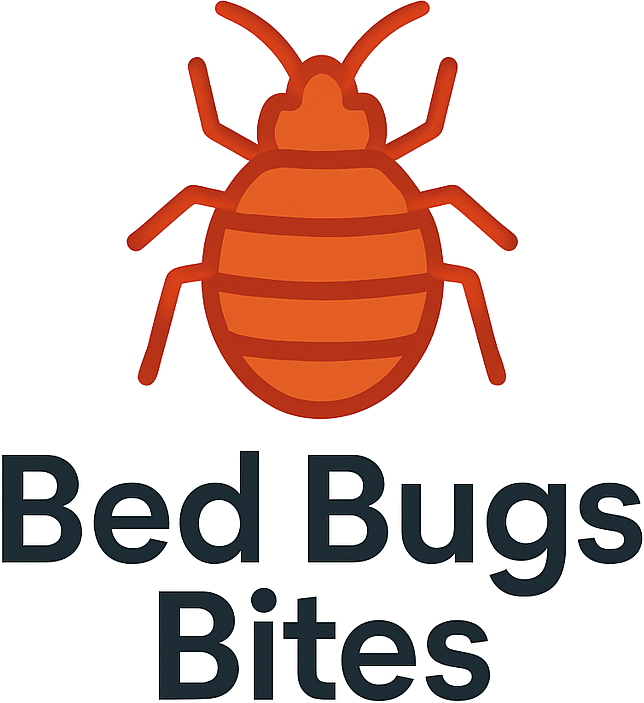Essential oils have become a promising natural way to get rid of bed bugs and maybe even lower the chances of getting bitten by them. Researchers and homeowners are both looking for plant-based solutions that work and are safe for indoor spaces as these blood-sucking parasites become more resistant to traditional synthetic pesticides.
Understanding Bed Bug Behavior and Bite Prevention
Bed bugs are nocturnal parasites that feed exclusively on blood, usually targeting people as they are sleeping. During the day, these flat, wingless bugs hide in mattresses, box springs, bed frames, and furniture cracks. At night, they come out to look for food. To keep bed bugs from biting you, you need to do more than just kill the ones that are already there. You also need to make places that keep these bugs away and stop them from starting infestations in the first place.
Bed bug control is getting harder because these bugs have learnt how to fight back against regular insecticides in new and clever ways. Bed bug populations that are resistant have too many cytochrome P450 enzymes, which break down synthetic pesticides like pyrethroids. This makes many commercial treatments less effective. This resistance has made it very important to find other ways to control these pests that can get around these biological defences.
Essential Oil Compounds with Anti-Bed Bug Properties
Scientific research has shown that several essential oil compounds work very well as a repellent and some are even toxic to bed bugs. Researchers in the lab have found that certain chemicals can keep bed bugs away from treated areas and even kill them when they come into contact with them.
Carvacrol (from oregano and thyme), thymol (from thyme), citronellic acid (from lemongrass), and eugenol (from clove) are some of the best essential oils for getting rid of bed bugs. These chemicals work in a number of ways to mess with bed bug nervous systems and make places that are not good for the bugs to live in.
Another powerful chemical found in java citronella oil is geraniol, which has been shown to work very well in both lab and field studies. Studies show that bed bugs always stay away from surfaces that have been treated with geraniol, even after 24 hours. Eugenol and citronellic acid also stay effective as repellents for a long time, which makes them useful parts of long-term bed bug control plans.
How do essential oils compare to synthetic insecticides in effectiveness? Field studies comparing essential oil-based products to conventional insecticides have shown surprisingly similar results. Research on EcoRaider, a product made with essential oils like geraniol and cedar oil, showed that it killed 92.5% of bed bugs after 12 weeks of use. This was statistically the same as the 92.9% reduction achieved by synthetic pyrethroid and neonicotinoid combinations.
How Essential Oils Work and Their Synergistic Effects
Essential oils kill bed bugs in a different way than synthetic insecticides do, which is why they work against bed bugs that are resistant to other methods. Essential oil compounds like thymol, carvacrol, and eugenol work in different ways than regular pyrethroids, which target sodium channels in insect nervous systems. This makes it hard for resistant bed bugs to get around them.
Recent groundbreaking research has shown that essential oil compounds can actually make synthetic insecticides work again against bed bug populations that are resistant to them. These natural substances attach to and stop the cytochrome P450 enzymes that resistant bed bugs use to break down synthetic pesticides. This takes away their main way of protecting themselves. This finding makes it possible to use both natural and synthetic methods in combination treatments.
The fact that essential oils and regular insecticides work better together than either one alone suggests that using both together might be the best way to go. When essential oil compounds stop resistance enzymes from working, synthetic insecticides can once again effectively target bed bug nervous systems. This can kill even very resistant populations quickly.
Practical Applications for Bite Prevention
There are many ways to use essential oils in bed bug control programs, all of which are meant to create barriers that keep bed bugs from biting. Direct application means using diluted essential oil solutions on mattresses, bed frames, and furniture to make areas that bed bugs don’t want to go.
Tea tree oil is another natural way to get rid of bed bugs, but it doesn’t seem to work as well as the other chemicals mentioned above. Terpinen-4-ol is in tea tree oil and can mess with the nervous systems of bed bugs and make places where they live less comfortably. But people with sensitive skin should be careful when using tea tree oil because it can cause irritation, allergic reactions, and other side effects.
One way to use aromatherapy diffusers in the environment is to spread essential oil vapours around rooms. This makes the air less inviting for bed bugs. You can use spray applications that mix essential oils with water on places where bed bugs are likely to hide, but you need to be careful to make sure the oils are properly diluted so they don’t irritate your skin.
What are the limitations of essential oils for bed bug control? Essential oils may work as repellents, but studies show that they might not work completely when there are host-associated cues. Studies show that bed bugs will cross barriers made of essential oil compounds when they are drawn to heat sources and carbon dioxide, which are signs that a potential host is nearby. This means that essential oils can protect things and make places less comfortable, but they might not stop bed bugs from getting to people who are sleeping.
Safety Considerations and Best Practices
Essential oils are much safer than synthetic pesticides, especially when used indoors where people are most likely to come into contact with them. Most essential oil compounds are thought to be safe for people and can be used directly on furniture and bedding, where regular insecticides would not be safe.
Essential oils, on the other hand, do have some risks. For instance, tea tree oil is poisonous when you eat it and can cause serious symptoms like confusion, hallucinations, and coma. People who are sensitive may also get skin irritation, allergic reactions, or contact dermatitis from topical applications. Before using it widely, it is important to dilute it correctly and test it on a small area.
Essential oils only work for a short time, so you need to apply them again and again to keep them working. Synthetic insecticides can stay active for weeks or months, but essential oil treatments usually need to be reapplied every 24 to 48 hours to keep their best repellent properties.
Future Directions and Integrated Management
The best way to get rid of bed bugs in the future is probably to use a combination of essential oils and other methods. Essential oils are great at making places that keep bugs away, and they can be useful parts of full bed bug control programs that also use physical controls, heat treatments, and targeted synthetic applications.
Researchers are still looking into the best ways to make and deliver bed bug control products that are based on essential oils. Scientists are investigating encapsulation techniques that could extend the effective duration of essential oil treatments and combination formulas that maximize synergistic effects between different natural compounds.
Are essential oils a complete solution for bed bug infestations? Current evidence shows that essential oils are useful for getting rid of bed bugs, but they work best when used in conjunction with other pest control methods rather than on their own. Essential oils should be used along with other control methods because their effects are only temporary and bed bugs can get around repellent barriers when they really want to.
Essential oils are a big step forward in safe, natural ways to get rid of bed bugs. They may not always keep you from getting bitten, but they can keep bed bugs away, lower the number of them in your home, and make other treatments work better. This makes them useful tools in the ongoing fight against these annoying bugs. Essential oils will probably become more and more important in keeping homes and families safe from bed bug infestations as research continues to improve how they are used and find new compounds that work.


